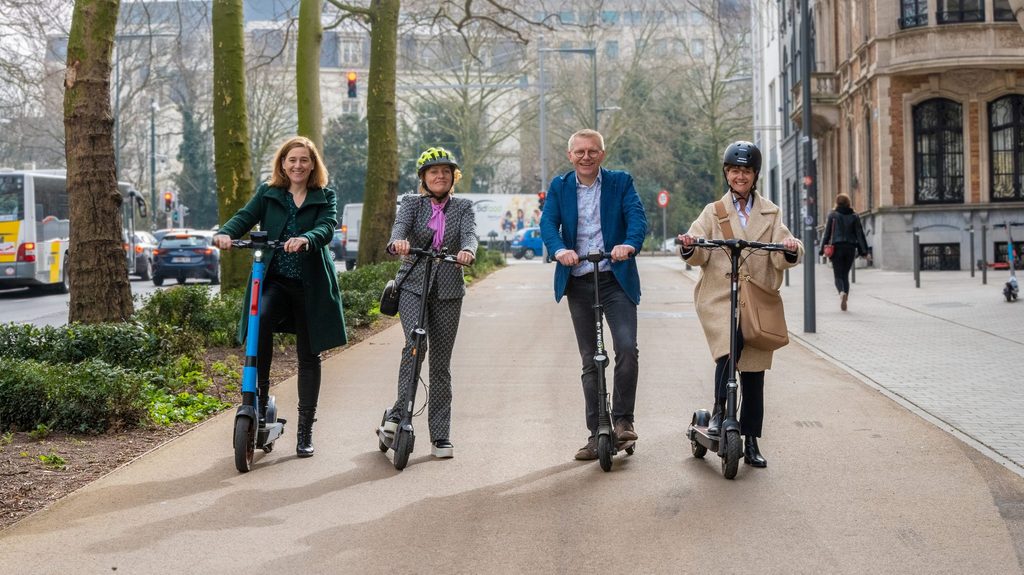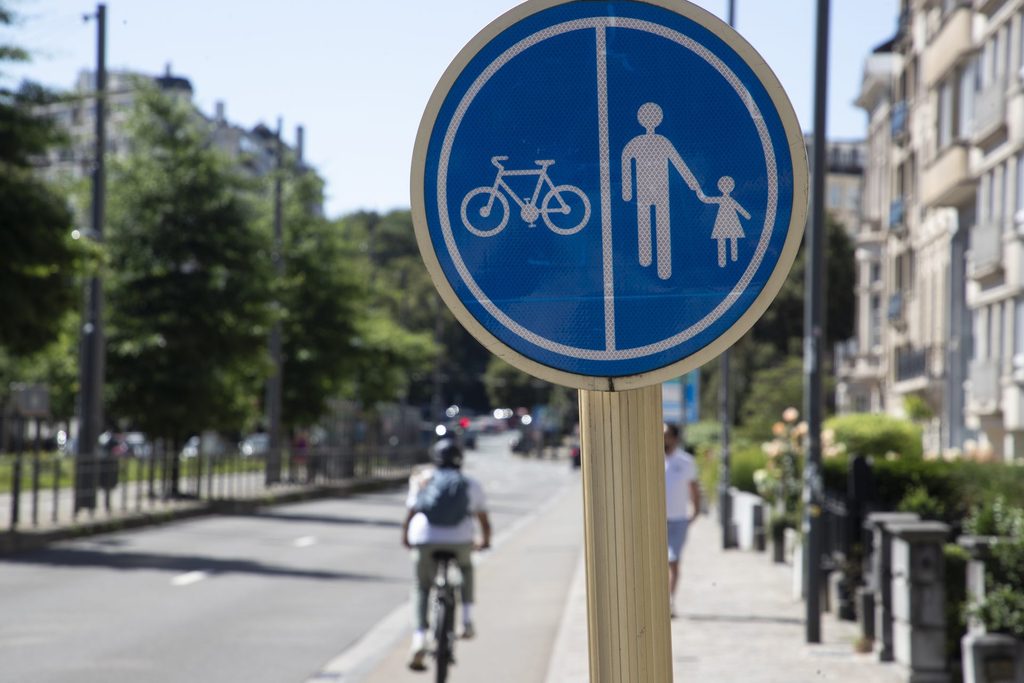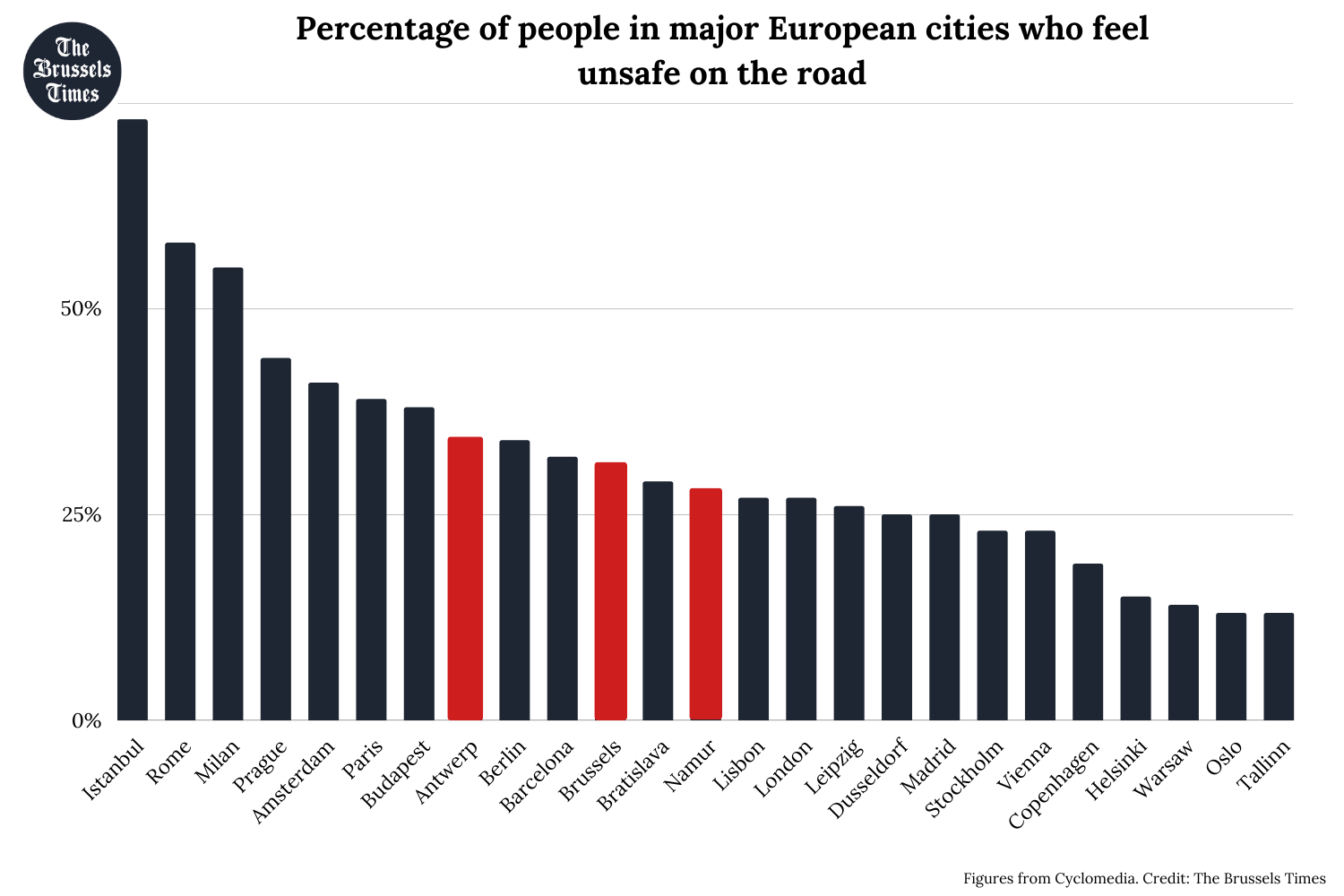Around one in three (32%) Brussels residents do not feel safe on the city's roads, and many claim it is because of shared electric vehicles, a recent survey found.
Brussels ranked 11th among cities where residents do not feel safe on the road, according to the Urban Road Safety Index (URSI) 2023 published by the Dutch company Cyclomedia, which recently completed the "most accurate and up-to-date" mapping of Belgium. It examined mobility trends and feelings of road safety in 25 European metropolitan cities.
Cyclomedia's study showed that six out of ten Brussels residents (60%) advise against living in the Belgian capital, taking road safety into account.
However, compared with other European cities, the city is doing better than what many believe. With 31% of people feeling unsafe in Brussels, it performed better than the Flemish city of Antwerp (34%) but worse than Namur, where 28% indicated they felt unsafe.
In the Turkish capital Istanbul, 73% of people indicated they do not feel safe when in traffic, while this feeling was also present in the Italian cities of Milan (45%) and Rome (42%). In Oslo and Tallinn, 87% of people feel safe on the city's roads.
Shared vehicles driving the score
Despite the emergence of shared e-scooters and e-bicycles making traffic flow more smoothly in the capital, the URSI showed that the emergence of shared electric vehicles in Brussels is contributing significantly to a growing sense of insecurity on the roads: 64% of the Belgian capital's residents attribute the increase in the number of road accidents to this type of transport.

Belgian Mobility Ministers on e-scooters: Brussels Minister Elke Van den Brandt, Flemish Minister Lydia Peeters, Federal Minister Georges Gilkinet and Walloon Minister Valerie De Bue. Credit: Belga
"There's no doubt that there's still work to be done to improve the feeling of safety in the city. Adjustments need to be made to take account of ongoing developments in the field of mobility to ensure that everyone feels safer when out and about," said Bart Verbeeck, Sales Director at Cyclomédia, who explained that these shared vehicles have resulted in different behaviour on the roads.
Many Brussels residents (54%) even indicated that e-scooters should be abolished alltogether in the city. While the regional government has already confirmed it will not ban these vehicles, it will cap the maximum number of e-scooters in the region at 8,000, down from the current 21,000 deployed by eight operators from next year.
More than half of Brussels residents (55%) also indicated that they do not feel safe cycling in the city, but just as many people indicated that better demarcation between car lanes and cycle paths would be an effective solution to the problem.
While local authorities play a key role in planning mobility and creating high-quality infrastructure, and many changes are being made to improve the traffic situation across the city, only half of Brussels residents feel that enough has been done to improve traffic flow.


